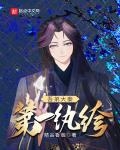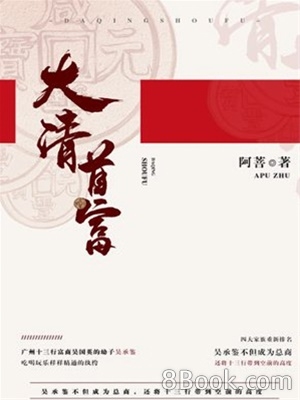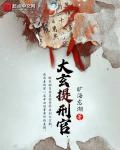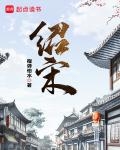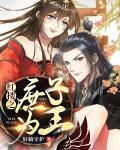Chapter 200 Primary Liberation (VII)
Many years later, Gao Pang stood on the Kuaiji Mountain. The smoke of gunpowder had dispersed. The Han army had assembled at the foot of the mountain, with neat formations and fluttering flags. The elite of the Han army had gathered here.
" Salute!" said King Qian Qingming of Qi who was standing next to Gao Pang.
The herald waved the signal flag, and all the tall and huge Han soldiers in front of him saluted in unison.
Gao Pang raised his hand to return the greeting. Qian Qing took the pistol from his waist and handed it to Gao Pang. It was an exquisite revolver. It was also Qian Qing's favorite pistol.
Seeing the regret on Qian Qing's still lively and dignified face, Gao Pang smiled and said, "Why act like a child? It's not like you."
Although he was speaking to Qian Qing, the Prince of Qi, Gao Yueban was thinking of the evening when he first met Huo Chong. Before meeting Huo Chong, Gao Pang had always believed that Confucianism taught the knowledge of the entire world, or at least the knowledge that could explain the entire world.
It was not until he met Huo Chong that Gao Pang realized that, regardless of the personal cultivation and level of the so-called successors of Confucianism, Confucianism itself was merely a part of the knowledge of the entire world at a certain stage, and it was only a very small part of knowledge at that.
But that evening, Gao Pang didn't know what he had encountered. At that time, he was completely attracted by Huo Chong's story.
Confucianism is not a school of logic, and other schools of thought that once emerged in China have basically no successors. In Huo Chong, Gao Pang finally met someone in his life who could systematically propose non-Confucian ideas, and Huo Chong used extremely simple and clear terms to tell Gao Pang about his understanding of the world.
"...The previous discussion was about materialism and idealism. The difference is only in whether matter is primary or consciousness is primary. Do you understand this?"
Gao Pang nodded repeatedly, "I understand, Mr. Huo. But I still can't say that I believe it."
"It doesn't matter. It's not easy to really believe in such things. Materialism is a standpoint, and even the most staunch materialists will have some mystical thoughts. This is not uncommon. Once you have a standpoint, you need to talk about how to use the means based on this standpoint. That is logic..."
Gao Pang concentrated his attention and followed Huo Chong's thoughts. Although what Huo Chong said did not seem to be exaggerated, the simpler the things were, the more he felt as if they were directly connected to the vast world itself.
Gao Pang was intoxicated by this feeling.
"There are only two concepts to pay attention to in basic logic. Logical form and propositional form. Logical form only cares about whether it is valid, while propositional form only cares about whether it is correct..."
When Huo Chong finished speaking, Gao Pang was stunned and asked quickly, "Is it that simple?"
"It's so simple, why should it be so complicated?" Huo Chong asked back.
Gao Pang had no way to refute Huo Chong's confident question. The contents of the Four Books and Five Classics and Cheng-Zhu School of Thought were very complicated. Each one was a sincere instruction, trying to make people fully accept the words of those who had passed away hundreds or thousands of years ago.
Compared to this, what Huo Chong said was ridiculously simple. Huo Chong himself actually dared to use such a simple concept to explain the world. Regardless of whether it was right or wrong, Gao Pang was extremely impressed by his confidence.
But does this thing really work? Gao Pang had no confidence. So he tried to test it out: "Since you said so, could you please explain why the current court wants to do so... the logic behind setting Confucian rules, please?"
After Gao Pang finished speaking, he listened carefully. This explanation was the core of what had been bothering Gao Pang. In fact, how could Gao Pang not know that it was wrong to be arrogant because of his talent, and it was even more impossible for him not to know that people must have a sense of awe.
However, the more he learned, the more Gao Pang discovered how those in power never followed the rules they demanded of others.
Even if Confucius' status was elevated to an indescribable level, the Confucianism promoted by the Qing Dynasty could probably be defined as a heresy in Confucius' eyes. Gao Pang really couldn't feel awe for these people.
"Gao Pang, the logic of the Qing court is so different from the logic of the people. Make trouble, fail, make trouble again, fail again, until destruction - this is the logic of the Qing court and all the reactionaries who oppress and exploit the people in China towards the people's cause, and they will never violate this logic."
Gao Pang was stunned. There were many people who cursed the imperial court, but this was the first time Gao Pang had heard Huo Chong curse like this. He just used the contemptuous attitude of "making trouble", right...
"Struggle, fail, struggle again, fail again, struggle again, until victory - this is the logic of the people, and the people will never go against this logic. As long as the people's justice is not served, no matter how much blood is shed, this struggle will not end," Huo Chong said seriously.
Hearing the description of the bloodshed, Gao Pang nodded repeatedly. This was the truth he saw.
"Gao Pang, when we say that the Manchu rulers are very vicious, we mean that their nature will not change. The oppressors will never voluntarily lay down their butcher knives, and they will never become Buddhas until their demise. Gao Pang, do you think they are shameless?"
Gao Pang nodded. This was the thing he could not accept the most.
"They are not shameless just for the sake of being shameless. There is no point! The distorted Confucian philosophy you mentioned is nothing more than the embodiment of the logic of the oppressors. Everything they do is to oppress others and take the fruits of others' labor for themselves. In order to realize this logic, they dare to do anything and will do anything!"
Gao Pang let out a long breath. The biggest doubt was finally revealed, and the feeling of relief was incomparable. However, a moment later, Gao Pang was shocked by the darkness he saw before him. The thought of facing such a huge evil made Gao Pang feel so stressed that he could hardly breathe.
So many officials, so many government troops, and even more scholars have consciously or unconsciously become part of the oppressor ranks and are acting under this logic.
Even after realizing so much, Gao Pang still had no hatred towards the gentlemen in Jiangnan, and still held respect for them. However, in addition to being happy to follow the logic of the oppressors, these gentlemen also tried their best to make their disciples accept this logic and become staunch supporters of implementing this logic.
Looking up at Huo Chong, Gao Pang suddenly became alert. This indifferent scholar in front of him was not only a person who could see the essence of the world, but also a strong man who annihilated 100,000 government troops. Maybe Huo Chong could really destroy the Qing Dynasty, change the dynasty, and build a new era of "science, democracy, freedom, and equality" as described in the manifesto.
Is it really possible?
Just as he was thinking, the door opened and a woman walked in. Gao Pang thought that the woman was Huo Chong's family member, so he lowered his eyes. Then he heard the woman say, "Sir, is this the scholar that Xu Youlin introduced?"
Could this woman be Huo Chong's apprentice? Gao Pang looked up in surprise and saw that the woman was tall, taller than Gao Pang. She was wearing the same military uniform as the male soldiers Gao Pang had seen before, and she also had a sword on her waist.
"Qing'er, this is Gao Pang. He's a very interesting kid. This is the first time in all these years that I've seen someone who's interested in the nature of the world. It's rare to see that."
Huo Chong's words sparked the woman's interest, and she looked down at Gao Pang carefully. The sharp gaze made Gao Pang feel very uncomfortable. Then the woman said, "Hello, my name is Qian Qing, and I am Mr. Huo's eldest disciple. Brother Gao, how did you come to Mr. Huo?"
Gao Pang felt very uncomfortable and instinctively retorted: "I am only here to seek advice, not to surrender."
"Oh... quite unique! Haha." Qian Qing laughed.
Gao Pang felt even more unhappy. However, in the next two days, Qian Qing did not let Gao Pang go, and even called a scholar named Lei Hu to talk to Gao Pang on the pretext of discussing academic matters.
The three of them were about the same age and all of them were educated. Gao Pang didn't seem to be at a disadvantage at all, and he had many tit-for-tat arguments with the group of people, mainly the two of them.
During the debate, Gao Pang discovered that Qian Qing, Lei Hu and others had all studied the Introduction to Logic given by Huo Chong, and they spoke very logically. However, they had not read many books, at least not as many as Gao Pang. Lei Hu was better, but his status was obviously lower than Qian Qing.
When discussing the situation in the world, Gao Pang covered a wide range of topics, and gradually absorbed many of his opponent's views on logic during the debate. The more he debated and talked about strategy, the more he felt that he had improved greatly.
Although Qian Qing and Lei Hu were not bad, they instinctively followed Huo Chong's ideas, so they were inevitably a bit rigid and forced to explain things that they had not fully understood. Gradually, they could not resist it anymore.
A few days passed like this, Gao Pang lay in his residence, slowly sorting out the many new ideas he had in his mind.
Gao Pang especially pondered over Huo Chong's sharp comment that "people who talk about humanity without being realistic are all inhumane."
My thoughts became increasingly confused, but suddenly, as my position of "materialism" was confirmed, I felt as if everything had become clear.
Materialism holds that matter exists first, and then humans and human consciousness, who rely on .
Since there is no way to prove that the concept of "human nature" exists, there is no way to point out a "human nature" that is separated from the material basis. According to Huo Chong, that is transcendentalism. It means first acknowledging the existence of something, and then adding various attributes to this pre-existing thing.
Apriorism is not a "concept". For example, when Huo Chong talked about the foundation of logic, he pointed out that "logical form" and "propositional form" are a kind of concept, a method of laying down the basic points of deduction. This is a means of understanding the world, not something that really exists.
Those who talk about human nature and human heart do not care about what real people have experienced. They just talk about so-called human nature. Before people appeared, they defined human nature. Anyone who does not meet their definition is inhuman and heartless.
People like these are just as Huo Chong said, they are the inhumane ones.
The reason for doing so is just for their own benefit. No matter how those people praise the teachings of Confucius and Mencius, or how they express their respect for Confucius and Mencius, Confucius and Mencius are just their tools. If there are better tools that can achieve their own interests, these people will immediately discard Confucius and Mencius, and worship something that is more beneficial to their interests.
Gao Pang used to think that these people were always wrong, but he thought that he looked down on them because he was not well-educated. Now Gao Pang finally understood that his attitude of looking down on those people was correct, and as for the rest, including his understanding of these people, it was completely wrong.
The idea finally came to him. Gao Pang sat up and stretched.
After relaxing, my next choices naturally come to mind.

